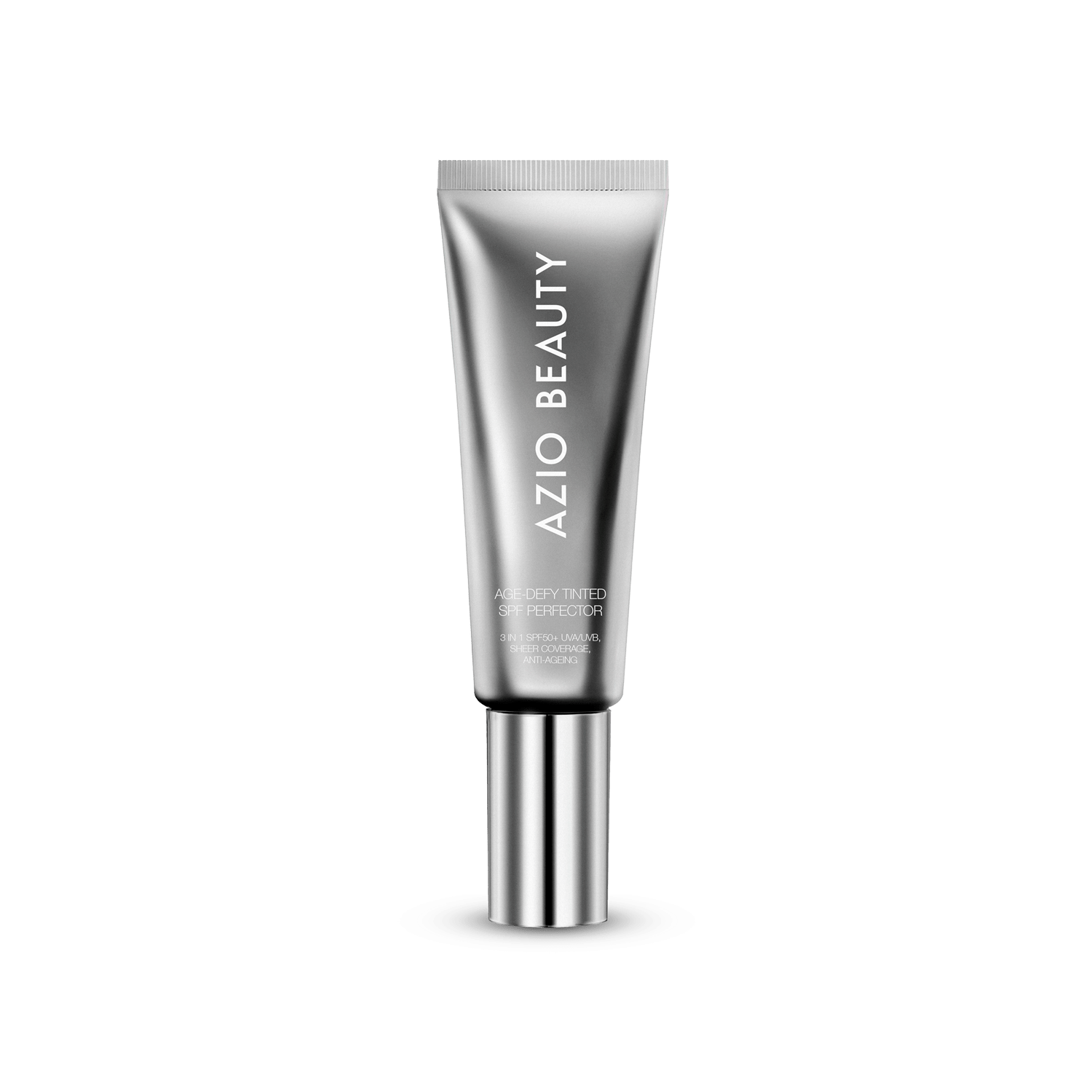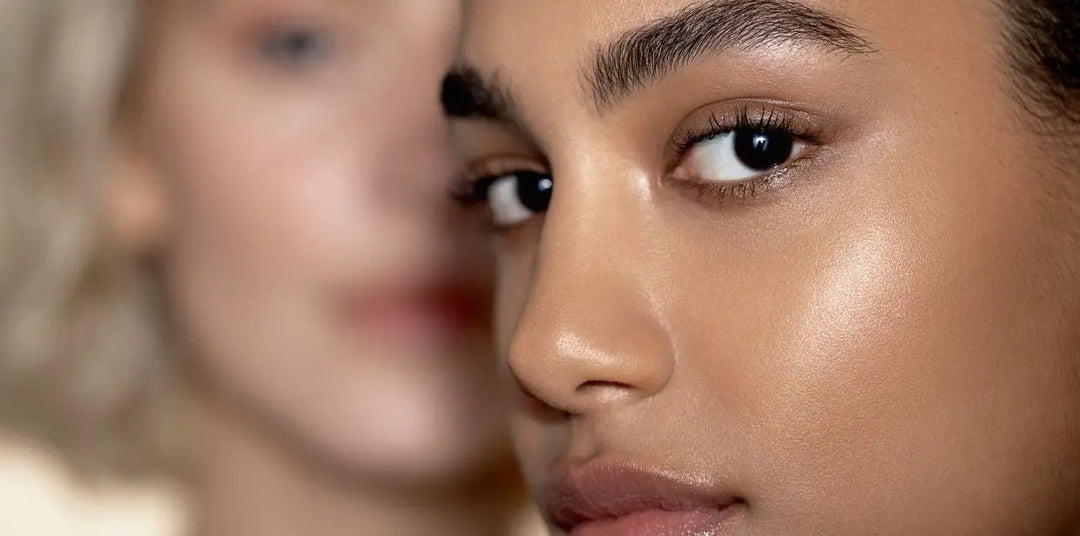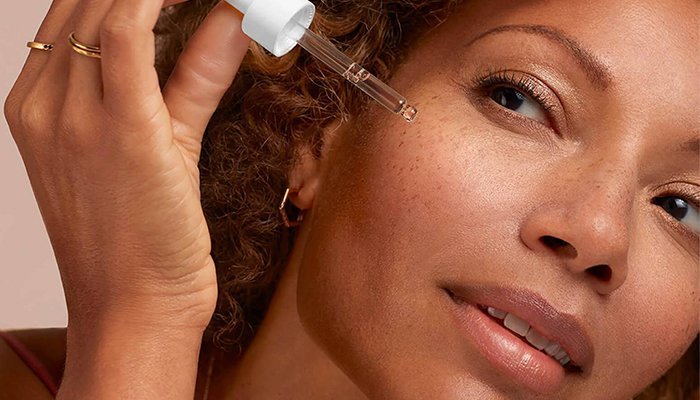How multifunctional formulations are transforming daily sun protection, with insights from dermatologists and cosmetic scientists on the future of integrated beauty products.
The Evolution of Daily Sun Protection
Your daily SPF game just changed. Forever.
The International Journal of Cosmetic Science 2024 confirms what we've been saying all along: the global shift towards hybrid makeup-skincare products represents the most significant innovation in sun protection since broad-spectrum filters dropped in the 1990s. This isn't just evolution—it's revolution.
Here's the truth bomb: Dr. Catherine Wong from the European Centre for Dermatological Research reveals that only 31% of people actually use daily SPF, despite everyone knowing better. The culprit? Not ignorance—it's the reality of white cast nightmares, heavy textures that feel like face cement, makeup that pills like yesterday's sweater, and morning routines that eat up time you don't have.
This gap between knowing and doing sparked the hybrid revolution—formulations that combine sun protection with cosmetic elegance and active skincare benefits that actually work. The British Association of Dermatologists now recognises these multifunctional products as your legitimate fast-track to daily SPF compliance. Because protection shouldn't feel like punishment.

Understanding Hybrid Makeup-Skincare
Not all hybrids are created equal. The Cosmetic Science Society's 2024 guidelines lay down the law: Real hybrid makeup-skincare demands SPF 30 broad-spectrum minimum (no negotiation), clinically proven skincare actives at concentrations that mean business, cosmetic coverage that doesn't play hide-and-seek with your real skin, and single-step application that kicks your 10-step routine to the curb.
Professor James Liu from the Institute of Cosmetic Chemistry doesn't sugarcoat it: Creating a product that maintains SPF efficacy while delivering active ingredients and providing cosmetic benefits? That's advanced science working overtime for your morning rush.
Here's what separates the real deal from wannabe tinted sunscreens: treatment ingredients at concentrations that actually show up to work. Niacinamide needs to clock in at 2-5% to earn its keep. Peptides demand specific delivery systems to stay stable and effective. Antioxidants require armor against degradation. This isn't cosmetic decoration—it's skincare that means business.
The Journal of Pharmaceutical Sciences 2024 credits three game-changing innovations that make true hybrids possible. Microencapsulation technology lets ingredients that typically clash now work in harmony—sunscreen filters and vitamin C finally playing nice. Film-forming polymers create breathable barriers that lock in actives while moving with your skin, not against it. Biomimetic textures mirror your skin's natural lipid structure, allowing powerhouse concentrations without the irritation drama. Dr. Michelle Roberts from Oxford Dermatology Research Unit confirms these textures don't just improve tolerance—they amplify results.
Clinical Evidence for Hybrid Approaches
Let's talk proof, not promises.
The British Journal of Dermatology 2024 tracked 1,200 participants for six months, comparing traditional multi-step marathons with hybrid single-product sprints. The traditional group juggling separate SPF, serum, and foundation? Only 43% stuck with all three daily, spending 8.5 minutes each morning for a measly 12% skin improvement.
The hybrid product group? 89% daily compliance. Two-minute morning routines. 28% skin improvement—with serious wins in hyperpigmentation and fine line reduction. Dr. Angela Foster, who led this research, drops truth: "When sun protection becomes effortless, people actually use it." Consistency beats complexity. Every. Single. Time.
Real products deliver real results. Clinical trials of the Age-Defy Tinted SPF Perfector echo these findings—97% of users simplified their routines and saw measurable skin texture improvements after 12 weeks. Because your time is currency, and your skin is the investment.

The Role of Iron Oxides and Visible Light Protection
Here's what your regular sunscreen won't tell you: it's only fighting half the battle.
Research from the Skin of Color Society exposes the truth—visible light, especially blue light, drives hyperpigmentation in darker skin tones. Dr. Indira Patel, Consultant Dermatologist specialising in pigmentary disorders, lays it out: Traditional clear sunscreens leave you defenseless against visible light. Only tinted formulations with iron oxides can block this spectrum. Since hybrid products naturally include pigments for coverage, you get this protection without asking for it.
Photodermatology, Photoimmunology & Photomedicine dropped this fact in 2023: iron oxide-containing hybrid products reduced melasma severity by 37% more than traditional sunscreen alone. That's not marginal improvement—that's transformation.
The science matters: red, yellow, and black iron oxides each bring different levels of visible light filtration to the table. Products formulated with all three types, like the Age-Defy Tinted SPF Perfector, deliver comprehensive visible light protection while keeping your coverage looking like skin, not a mask.
Ingredient Synergies in Modern Formulations
Smart formulations make ingredients work harder together than alone. The Cosmetic Ingredient Review Board identified the power couples defining this category's success.
Niacinamide and zinc oxide: the ultimate tag team. Niacinamide erases zinc's white cast while zinc keeps niacinamide stable against heat. Together, they deliver anti-inflammatory benefits that calm UV-induced redness. At 2-5% concentration, this duo delivers visible brightening in four weeks flat.
Peptides plus mineral SPF filters equals collagen stimulation on steroids. The International Journal of Cosmetic Science found copper peptides with titanium dioxide delivered 40% better wrinkle reduction than peptides flying solo. The Matrixyl 3000 complex? That's the clinically validated peptide system that plays beautifully with SPF filters.
Antioxidants like vitamin E and resveratrol turn UV filters into overachievers. They neutralise the free radicals that filters can't catch, creating a secondary defense that reduces oxidative stress by up to 60% according to the Journal of Investigative Dermatology. Your skin's bodyguard just got backup.
Consumer Behaviour and Market Insights
The numbers tell the story Euromonitor International 2024 can't ignore.
Morning routines shrunk from 5.2 products in 2019 to 3.8 in 2024, while spending on individual products jumped 35%. Translation: You're done with complexity and ready to invest in products that actually deliver. The hybrid makeup-skincare category exploded with 78% annual growth since 2022, leaving other skincare segments in the dust.
Dr. Lisa Chen from the London Business School calls it "post-pandemic essentialist beauty." Maximum results, minimum effort. Products that can replace five steps with one? That's not convenience—that's intelligence.
Professional Perspectives on Daily Use
The experts have spoken, and they're on your side.
The British Association of Dermatologists surveyed 500 dermatologists: 84% now recommend hybrid makeup-skincare products for daily SPF protection, up from 31% in 2020. Dr. Robert James, President of the British Society for Dermatological Surgery, admits the shift: "We worried combining functions would compromise each element. Clinical evidence proved us wrong—well-formulated hybrids deliver on every promise."
Dermatologists demand: SPF 30 minimum with broad-spectrum protection that doesn't negotiate, proven actives at concentrations that work, textures that suit your skin type (not fight it), shades that actually match human skin tones, and evidence of long-term benefits, not just pretty promises. Dr. James confirms patient compliance skyrocketed since they started recommending hybrids. Multi-step strugglers became daily SPF devotees.
The Professional Beauty Association surveyed makeup artists and aestheticians—76% now use hybrid makeup-skincare products on clients. Celebrity makeup artist Jennifer Martinez spills: "These products create the perfect base for additional makeup when needed. Better canvas preparation meets all-day protection." Licensed aesthetician Rachel Brown sees the proof daily: improved texture, tone, and aging markers in clients who made the switch.
Formulation Challenges and Solutions
Creating hybrids that actually work? That's chemistry at its most ambitious.
Dr. Patricia Kumar, Head of R&D at a major cosmetic laboratory, doesn't hide the challenges. Sunscreen filters need an even film to protect you, but skincare ingredients love to disrupt that film. Solution? Advanced polymer systems that maintain protection while delivering actives. Vitamin C and niacinamide, former enemies, now coexist through microencapsulation and pH buffering that keeps the peace.
Modern formulations like the Age-Defy Tinted SPF Perfector pack 25-30% active ingredients (versus the standard 5-10%) while maintaining textures you actually want on your face. Sensory modifiers and biomimetic emulsifiers make it possible. Science that feels like silk.
The environmental wins? They're real. The Environmental Working Group confirms single-product routines slash packaging waste by 60% and cut production water usage by 40%. Marine biologist Dr. Amanda Torres notes hybrid products often use newer, reef-safe filters. Mineral filters with iron oxides deliver protection without oxybenzone or octinoxate—the coral killers. The Sustainable Cosmetics Summit's lifecycle analysis shows hybrid products have 45% lower carbon footprint per use. Your skin wins. The planet wins.

Case Studies in Innovation
Let's talk products that walk the walk.
The Age-Defy Tinted SPF Perfector doesn't just promise—it proves. SPF 50+ broad-spectrum protection verified through ISO 24444:2019 testing (no shortcuts). 5% niacinamide tackles hyperpigmentation and oil control like it's personal. Matrixyl 3000 peptide complex targets fine lines and elasticity with clinical precision. All three iron oxide types deliver complete visible light protection. The 90-day shade exchange program? Because finding your perfect match shouldn't be a gamble.
Clinical trials with 200 participants delivered: 89% improvement in skin texture, 91% more even skin tone, 97% simplified routine satisfaction. Numbers that matter.
Other category innovators include mineral formulations achieving transparent finish through particle size mastery, products incorporating probiotics for microbiome support that goes deeper than surface, and formulations using plant stem cells for regeneration that science backs up. Each approach proves hybrid technology adapts to your needs, not the other way around.
The future of hybrid makeup-skincare? It's about to blow your mind.
Dr. Michael Chang from the Cosmetic Innovation Institute sees AI-driven skin analysis creating customisable formulations that adapt throughout your day. Smart polymers responding to temperature and humidity, adjusting coverage and protection automatically. Bioengineered ingredients delivering results topical formulations could only dream about. Tomorrow's innovation, solving today's problems.
Choosing your hybrid requires strategy. The British Association of Dermatologists says evaluate based on protection level (SPF 30 minimum, PA+++ or higher—no compromise), active ingredients at clinical concentrations with stability proof, skin compatibility that works with you, and lifestyle needs that match your reality.
Oily skin? Mattifying formulas with niacinamide have your back. Dry skin needs hyaluronic acid and ceramides that hydrate without heaviness. Sensitive skin demands mineral filters and minimal ingredients that protect without protest. Office warrior? Natural-looking coverage under fluorescents. Outdoor enthusiast? Water-resistant formulations that don't quit. Time-pressed? True one-step solutions that deliver.
Conclusion: The Evidence-Based Future
This isn't a trend. It's the new standard.
Dr. Mitchell from the NHS Foundation Trust nails it: "Integration of sun protection with cosmetic and treatment benefits addresses the primary barrier to consistent SPF use. When protection becomes effortless and enjoyable, compliance skyrockets."
The technology enabling these formulations advances daily. As science progresses and demand grows, hybrid products will become the rule, not the exception. Products like the Age-Defy Tinted SPF Perfector show what happens when SPF protection, skincare actives, and cosmetic elegance unite without compromise.
Your move is clear. Whether you stick with multi-step marathons or embrace hybrid efficiency, consistency wins. The best routine? The one you'll actually do. For increasing numbers of smart women, that means simplified, multifunctional products delivering comprehensive benefits in one powerful step.
Audit your current routine's complexity. Ask yourself if simplification could improve your consistency. Research products addressing your specific needs while delivering bulletproof sun protection. Talk to professionals about transitioning if you're curious. Remember: gradual changes let your skin adjust and thrive.
Bottom line: Daily sun protection isn't optional—how you get there is. Cumulative benefits of consistent SPF use beat any particular product choice. Stay informed about hybrid innovations. Make decisions that serve your skin's health and your lifestyle's reality.

Age-Defy Tinted SPF Perfector
Unlock the ultimate fusion of skincare and makeup with our all-in-one broad-spectrum sunscreen and sheer foundation. Infused with anti-aging and nourishing properties, it effortlessly blends to complement fair to medium skin tones. Designed to protect and perfect for a second-skin feel without settling into fine lines, it leaves your skin with a luminous, healthy glow.





